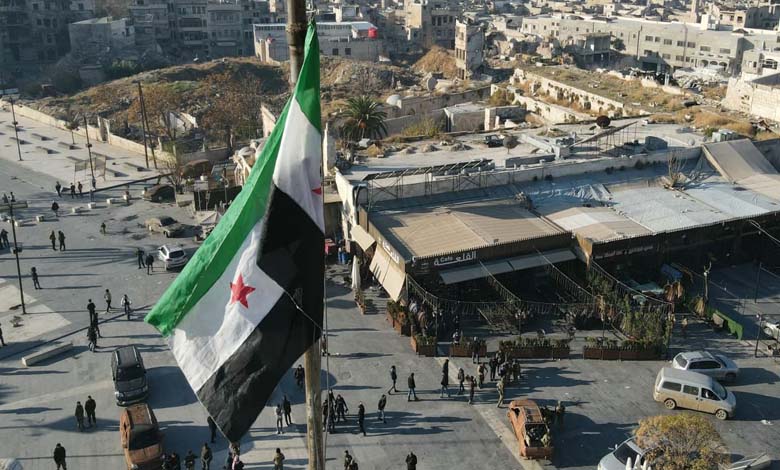Syria, Victim of its Geography: Why Does It Continue to Suffer?

The American magazine Foreign Policy considers that stability in Syria, following the ousting of Bashar al-Assad’s regime, remains a distant dream.
-
After Al-Assad’s Fall… Syria Closes Its Doors to the Houthis
-
“Bashar al-Assad’s Fall: The Map of Armed Groups Under the Banner of ‘Hay’at Tahrir al-Sham’”
Just as the civil war was a sectarian and ideological conflict, it was also deeply influenced by the country’s basic geography. With this chapter of the war seemingly closed, a new phase of conflict appears to have begun, according to the magazine.
Geography has always been a curse for Syria. The country lacks significant natural barriers both within its territory and at its borders. To the west lies the Mediterranean Sea, a trade route but also a pathway for military invasions. To the east stretches the Euphrates River valley. The south is bordered by desert, while the north features plains at the foot of the Taurus Mountains. In other words, Syria’s geography offers neither external defenses to deter invasions nor internal strongholds as a last line of defense.
-
Al-Assad’s Fall Weakens Iran but Doesn’t End Its Capabilities in the Middle East
-
Washington Warns al-Assad against Using Chemical Weapons in Response to His Defeats
Modern Syria’s borders are largely “artificial rather than natural.” The southern border is a straight line, while the eastern boundary appears equally arbitrary. As a result, these fragile borders have historically contributed to Syria’s lack of independence and weak national identity.
Geography has fragmented the country into six distinct regions: a southwestern oasis, a northern gateway, a western coastal strip, a rugged southern plateau, a north-south corridor, and an arid eastern plain.
-
Maher Al-Assad Abandons Hezbollah to Avoid Israeli Strikes
-
Al-Assad meets Khamenei and Raisi in Teheran – Details
Geography and its impact on Syria’s regions:
- Damascus: Nestled in an oasis surrounded by mountains and desert, Damascus serves as a small fortress. Limited access routes to the rest of the country have historically led its rulers to rely on heavily militarized governance.
- Aleppo: A trade hub connecting Anatolia to the north, Mesopotamia to the east, and the Levant to the south. Aleppo has been a target for major powers like the Romans, Ottomans, and modern Turkey, making it a perennial rival to Damascus. Controlling Aleppo is key for any Damascus-based ruler.
-
Israel Prepares for Worst-Case Scenarios in Syria
-
From Al-Qaeda’s veil to the political shirt: Who is Abu Mohammed al-Julani?
- The Coast: The coastal strip is home to religious minorities such as Alawites and Christians, who have often allied with foreign powers like France or Russia to ensure their survival.
- The Damascus-Aleppo Corridor: Linked by the Orontes River and running through Homs and Hama, this corridor is both a control artery and a hotspot for rebellions.
- The East: Comprising the Euphrates valley and part of the historic Jazira region, this area is home to resilient Arab nomadic tribes.
- The South: The Jebel Druze and the Hauran Plateau have historically provided refuge for persecuted minorities such as the Druze.
-
Washington Follows the Events in Syria… What about “Hayat Tahrir al-Sham”?
-
A New Study Outlines Possible Scenarios for Syria’s Future
Syria’s Fragmented Geography:
This fragmented geography has resulted in a divided country:
- Damascus, the capital, has limited connectivity with other regions.
- Aleppo, historically under Ottoman influence, remains a rival.
- The unstable corridor linking Homs, Hama, and Idlib serves as both a strategic artery and a source of conflict.
- The coastal strip and the Jebel Druze are geographically and politically isolated zones.
- Before modern Syria’s creation, Damascus never truly controlled Aleppo or Raqqa.
-
Ukraine and Lebanon: Two Separate Wars That Changed Syria’s Fate
-
Timeline of Events in Syria: How Did Damascus Fall into Rebel Hands?
Geography as a Source of National Weakness:
One of the main reasons for the absence of strong national authority in Syria lies in its fragmented geography. The country lacks a strong national identity and centralized power, making it a target for invasions and manipulation by regional and international powers. This diverse and divided geography has hindered national unity and complicated the establishment of an independent government.
-
Hama Countryside: Massive Syrian Army Reinforcements and “Mass Fleeing” of Militants
-
Latest Developments on the Syrian Scene
The Role of Geography in the Syrian Civil War:
The recent Syrian conflict has reinforced geography as a key factor in the war. While ISIS controlled Raqqa and Mosul, Damascus retained its hold on the coast with Russian support. The corridor connecting Damascus and Aleppo remained the primary battleground.
By controlling the Homs-Hama corridor, armed factions achieved significant victories. However, any new ruling power in Damascus will quickly realize that dominating such a fragmented geography is nearly impossible.
-
Aleppo Clashes: Syrian Army “Cleanses” Several Areas and Prepares for a Counterattack
-
Pro-Turkish Factions Control Half of Aleppo












